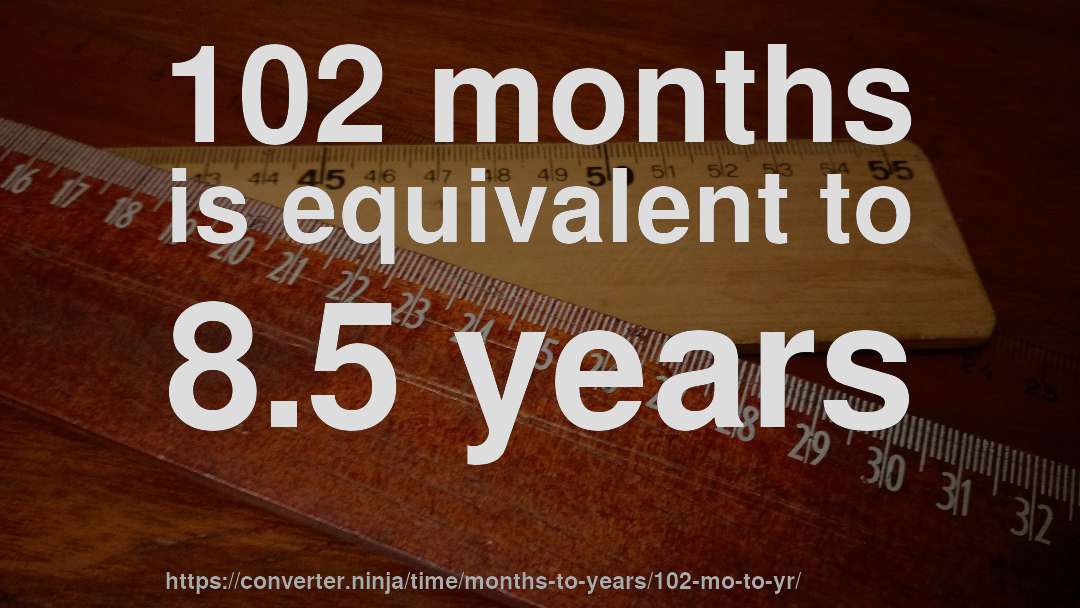
102 months is equivalent to 8.5 years.
We know (by definition) that: 1 mo ≈ 0.083333333 yr
We can set up a proportion to solve for the number of years.
1 mo 102 mo ≈ 0.083333333 yr x yrNow, we cross multiply to solve for our unknown x:
x yr ≈ 102 mo 1 mo * 0.083333333 yr → x yr ≈ 8.499999965999999 yrConclusion: 102 mo ≈ 8.499999965999999 yr
The inverse of the conversion factor is that 1 year is equal to 0.117647058823529 times 102 months.
It can also be expressed as: 102 months is equal to 1 0.117647058823529 years.
Approximation
An approximate numerical result would be: one hundred and two months is about zero years, or alternatively, a year is about zero point one two times one hundred and two months.
Units involved
This is how the units in this conversion are defined:
Months
"A month is a unit of time, used with calendars, which is approximately as long as a natural period related to the motion of the Moon; month and Moon are cognates. The traditional concept arose with the cycle of moon phases; such months (lunations) are synodic months and last approximately 29.53 days. From excavated tally sticks, researchers have deduced that people counted days in relation to the Moons phases as early as the Paleolithic age. Synodic months, based on the Moon s orbital period with respect to the Earth-Sun line, are still the basis of many calendars today, and are used to divide the year."
Years
"A year is the orbital in which Earth moves in its orbit around the Sun. Due to the Earth's axial tilt, the course of a year sees the passing of the seasons, marked by changes in weather, the hours of daylight, and, consequently, vegetation and soil fertility. In temperate and subpolar regions around the globe, four seasons are generally recognized: spring, summer, autumn and winter. In tropical and subtropical regions several geographical sectors do not present defined seasons; but in the seasonal tropics, the annual wet and dry seasons are recognized and tracked."
[1] The precision is 15 significant digits (fourteen digits to the right of the decimal point).
Results may contain small errors due to the use of floating point arithmetic.ncG1vNJzZmibn6PDpr7Tnqlnppmjt6J706KknmedpLu1tNJmq6hlqZqus7%2BOamdrZZ2kerW7jLKpaA%3D%3D